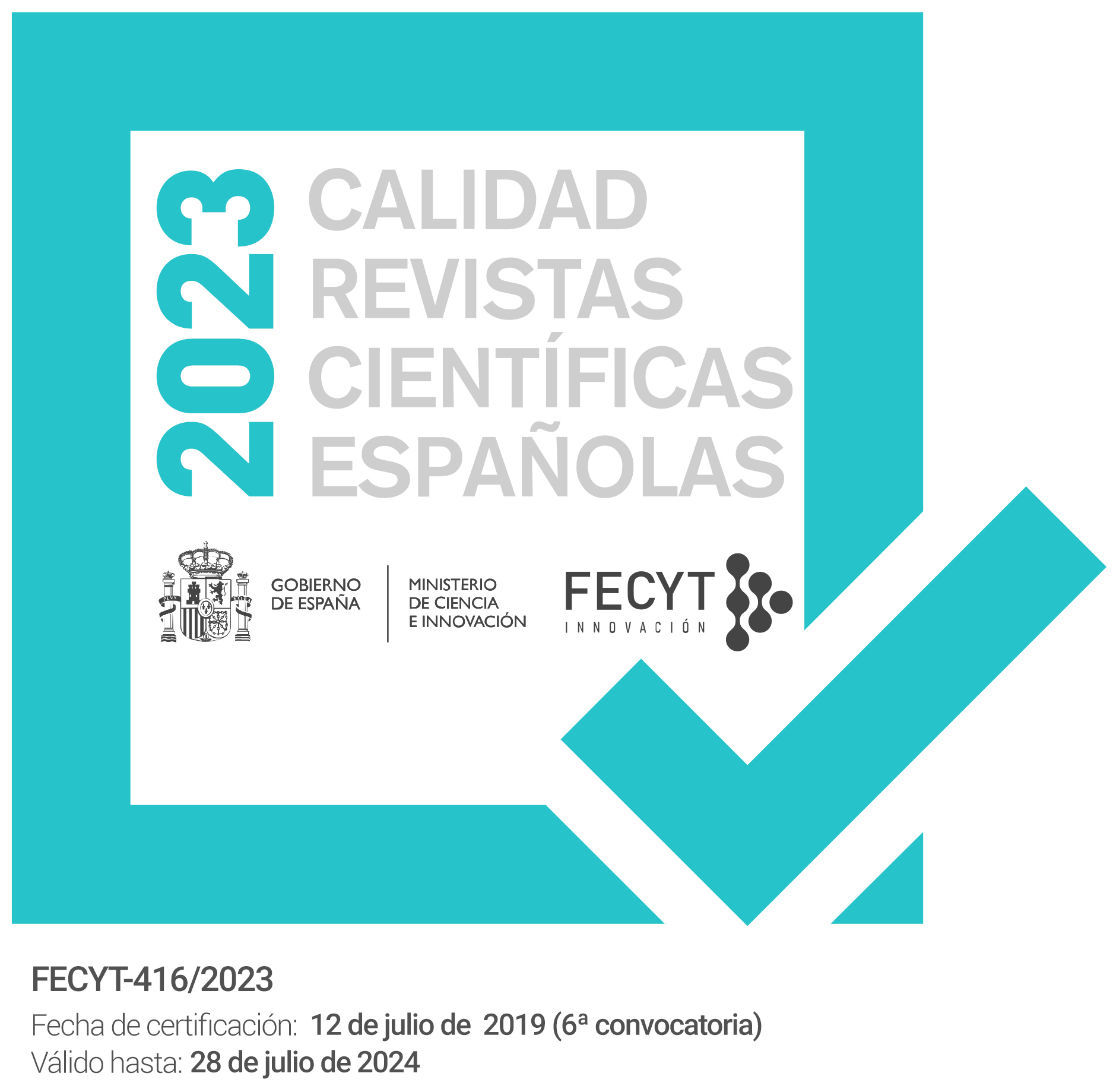Israel Sanmartín Barros, El debate historiográfico sobre El fin de la historia de Francis Fukuyama, Peter Lang, Hispanic studies: culture and ideas 64, Oxford, 2019, 613 págs., ISBN: 9783034317979.
DOI:
https://doi.org/10.51349/veg.2022.2.20Keywords:
NoneDownloads
References
Barros, C. (1999): Hacia un nuevo paradigma historiográfico, Memoria y Civilización, 2: 223-242.
Canaparo, C. (2008): Geo-Epistemology. Latin America and the Locaton of Knowledge, Peter Lang, Oxford.
Chartier, R. (1992): L’Ordre des libres. Lecteurs, auteurs, bibliothèques en Europe entre S. XIV et S. XVIII, Alinea, Aix-en-Provence.
Fukuyama, F. (1989): The end of History?, en The National Interest, no. 16, summer: 3-18.
LaCapra, D. (1983): Rethinking Intellectual History: Texts, Contexts, Language, Cornell University Press, New York.
Pasamar, G. (2008): Formas tradicionales y formas modernas de la “Historia del Presente”, Historia social, 62: 147-169.
Pérez Serrano, J. (2014): La Historia Actual como tendencia historiográfica, en AA.VV., Iglesia y Estado en la sociedad actual: política, cine y religión, Instituto de Estudios Riojanos, Logroño: 19-48.
Sanmartín Barros, I. (1999): ¿Quién es Francis Fukuyama?, Cuadernos de estudios gallegos, 46, 111: 193-206.
Sanmartín Barros, I. (2000): “El fin de la Historia” mirado hacia atrás y pensando hacia delante, en C. Barros (ed.) e I. Sanmartín (coord.), Historia a debate: actas del II Congreso Internacional “Historia a Debate”, celebrado del 14 al 18 de julio de 1999 en Santiago de Compostela, vol. 1, Historia a Debate, Santiago de Compostela: 199-212.
Sanmartín Barros, I. (2001a): La influencia de “El fin de la Historia” en la economía durante los años 90, Cuadernos de estudios gallegos, 48, 114: 215-246.
Sanmartín Barros, I. (2001b): La divulgación de “El fin de la Historia” en España, Cuadernos de estudios gallego, 47, 113: 205-232.
Sanmartín Barros, I. (2007a): Nuevas tendencias en la historiografía española, Cuadernos de estudios gallegos, 54, 120: 305-325.
Sanmartín Barros, I. (2007b): Entre dos siglos: globalización y pensamiento único, Akal, Madrid.
Sanmartín Barros, I. (2010): Las relaciones historiográficas entre Europa y América Latina a partir de las historias del presente, en E. Rey Tristán y P. Calvo González (coords.), 200 años de Iberoamérica (1810-2010): Congreso Internacional: Actas del XIV Encuentro de Latinoamericanistas Españoles, Universidad de Santiago de Compostela, Santiago de Compostela, Universidad de Santiago de Compostela: 1523-1541.
Sanmartín Barros, I. (2015): Temporalidad y contextos en la historiografía del siglo XI a partir de Raúl Glaber, en S. Gómez-Jordana Ferary e I. Sanmartín Barros, Temporalidad y contextos: la interdisciplinariedad a partir de la historia, el arte y la lingüística, Universidad de Santiago de Compostela, Santiago de Compostela: 335-360.
Sanmartín Barros, I. (2016): El concepto de revolución en la historia digital sobre la Edad Media, Semata: Ciencias sociais e humanidades, 28: 77-108
Sanmartín Barros, I. (2017): Mesianismo, apocaliptisimo y fin del mundo», Vegueta: Anuario de la Facultad de Geografía e Historia, 17: 9-23.
Sanmartín Barros, I. (2018): Las historias inmediatas y del presente en la historiografía actual, Historiografías: revista de historia y teoría, 15: 36-51.
Sanmartín Barros, I. (2021a): La construcción del discurso político apocalipticista del Vede Mecum in Tribulatione de Juan de Rocatallada en la Castilla de Juan II, Trabajos y comunicaciones, 53: 1-17.
Sanmartín Barros, I. (2021b): Los tiempos en el viaje de San Brandán, en J. Castiñeiras López y M. Cendón Fernández (eds.), Viajeros: de la Antigüedad al Nuevo Mundo, Universidad de Santiago de Compostela, Santiago de Compostela: 501-520
Sanmartín Barros, I.; Santana Pérez, J.M. (2020): La historiografía actual desde 1989, Vínculos de Historia, 9: 345-366.
Downloads
Published
Issue
Section
License
Copyright (c) 2022 Iago Brais Ferrás García

This work is licensed under a Creative Commons Attribution-NonCommercial-NoDerivatives 4.0 International License.
The articles are open access distributed under the terms of the Creative Commons Attribution-NonCommercial-NoDerivatives (CC BY-NC-ND) Spain 4.0 license. Authors who publish in this journal agree with the following terms:
a) Authors retain the copyright and guarantee the journal the right to be the first publication of the work as well as licensed under a Creative Commons Attribution License that allows others to share the work with a recognition of the authorship of the work and the Initial publication in this magazine.
b) Authors may separately establish additional agreements for the non-exclusive distribution of the version of the work published in the journal (for example, place it in an institutional repository or publish it in a book), with recognition of its initial publication in this magazine.
c) Authors are allowed and encouraged to disseminate their work electronically (for example, in institutional repositories or on their own website) before and during the submission process, as it may result in productive exchanges, as well as a earliest and largest citation of published works (See The Effect of Open Access).



